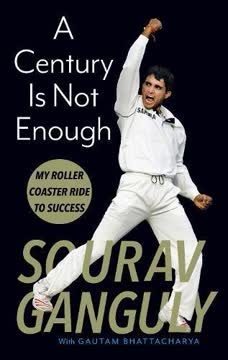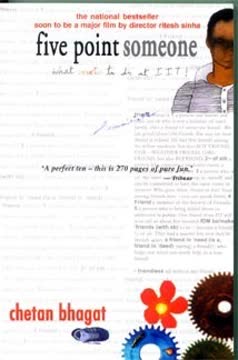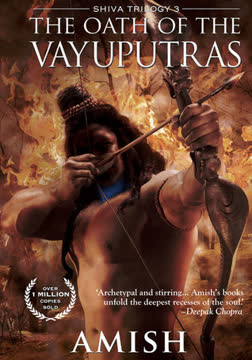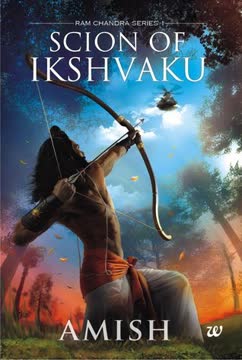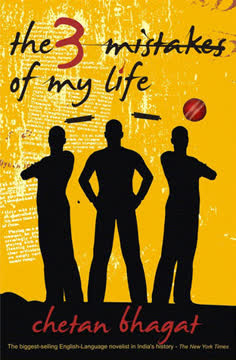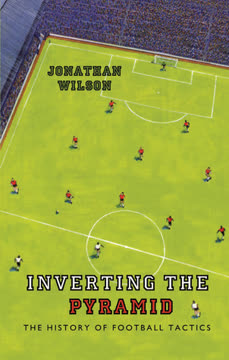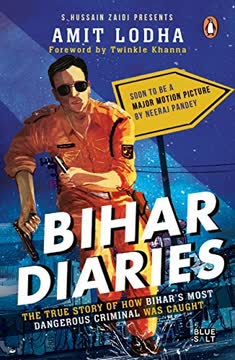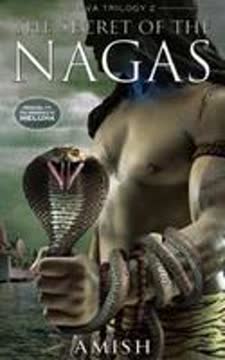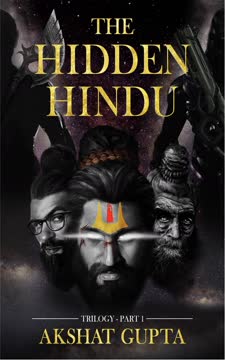Key Takeaways
1. Cricket as a Metaphor for Life's Challenges
Cricket may be a sport to some, but to me it was life and very close to my heart.
Life lessons through cricket. Sourav Ganguly's autobiography uses cricket as a lens through which to examine the broader challenges and triumphs of life. The pressures of performance, the sting of rejection, and the satisfaction of success on the cricket field mirror the experiences faced in any career or personal endeavor. Ganguly emphasizes that the mental fortitude developed through sport is invaluable in navigating life's complexities.
Sport teaches resilience. Ganguly highlights how cricket taught him to react to tough situations, emphasizing that there is no backward step in life. The game instilled in him the importance of taking tough decisions, a crucial skill for longevity in any field. He encourages readers to embrace challenges, viewing them as opportunities for growth and self-discovery.
The mind within. Beyond the runs and wickets, Ganguly delves into the mental game of cricket, focusing on the importance of reacting to painful crossroads. He stresses that the ability to react to tough situations defines a person's character and ultimately determines their success. This perspective shifts the focus from mere athletic ability to the mental strength required to overcome adversity.
2. The Bitter Taste of Early Rejection
What a way to begin one’s international career!
Harsh realities of professional sports. Ganguly recounts his underwhelming debut in Australia, facing the fearsome West Indian fast bowler Malcolm Marshall with minimal preparation. This experience serves as a stark introduction to the cutthroat world of professional sports, where talent alone is not enough and opportunities must be earned through hard work and perseverance.
Inferiority complex. He candidly admits to feeling an inferiority complex in the presence of cricketing legends like Kapil Dev and Azharuddin, highlighting the psychological challenges faced by young players entering the international arena. This vulnerability humanizes Ganguly and makes his subsequent achievements all the more impressive.
Unkind words. The tour was made even more difficult by the unkind words of a legendary Indian cricketer, who questioned Ganguly's deservingness of a place in the team. This incident left a deep emotional scar and underscored the importance of mental fortitude in the face of criticism and doubt.
3. Seizing the Second Chance
Tui dhukchis, Maharaj. You are in.
Hope and despair. After being dropped from the Indian team, Ganguly describes the emotional rollercoaster of hope and despair that accompanied his attempts to regain his place. This period highlights the mental toughness required to overcome setbacks and maintain belief in one's abilities.
Inner voice. He emphasizes the importance of an inner voice that prompts one to set aside desperation and fight again, underscoring the need for self-motivation and resilience in the face of adversity. This inner drive is what separates those who give up from those who persevere.
Back to the basics. Ganguly recounts his decision to play domestic cricket, including the obscure JP Atrya Memorial Trophy, to prove his worth to the selectors. This willingness to humble himself and start from scratch demonstrates his unwavering commitment to the game and his determination to reclaim his place in the national team.
4. The Defining Innings at Old Trafford
But I would say the real defining knock was the 46 I scored at Old Trafford.
Mental preparation. Ganguly credits his successful return to the Indian team to the advice he received from Desmond Haynes and Mark Craig, who emphasized the importance of mental preparation and staying in the present. These encounters highlight the crucial role of mindset in overcoming challenges and achieving success.
Haynes's discourse. Haynes stressed the importance of self-belief and positive visualization, while Craig emphasized the need to remain in the present and focus on giving one's best in every opportunity. These insights provided Ganguly with the mental tools he needed to succeed.
Impact of 46. Despite scoring only 46 runs, Ganguly considers his innings at Old Trafford to be a defining moment in his career, as it gave him the confidence to believe that he could succeed at the highest level. This performance served as a turning point, setting the stage for his subsequent achievements.
5. Lord's: A Testament to Perseverance
My name would now be permanently displayed on the iconic Lord’s Honours Board alongside the names of players I had so admired. I had truly arrived.
Lord's hundred. Ganguly describes the elation of scoring a century at Lord's, a feat that cemented his place in cricketing history and validated his years of hard work and perseverance. This achievement marked his arrival on the international stage and silenced his doubters.
Tendulkar's gesture. He recounts a touching moment when Sachin Tendulkar offered to fix his bat handle during the tea break, highlighting the respect and camaraderie that existed within the Indian team. This gesture symbolized Ganguly's acceptance into the elite circle of Indian cricketers.
Overcoming challenges. Ganguly emphasizes that his Lord's hundred was not just a personal triumph but also a testament to his ability to overcome challenges and prove his worth on the biggest stage. This performance solidified his belief in his own abilities and set the stage for his future success as a leader.
6. The Toronto Triumph: A Turning Point
I was no longer tentative. When I felt relaxed, batting was like a joyride.
Golden arm. After a successful tour in England, Ganguly faced another setback in Toronto, where he was dropped from the team. However, he used this experience as motivation to improve his game and return stronger, eventually earning the title of "man with the golden arm" for his outstanding performances with both bat and ball.
Imran's mantra. He recalls the advice he received from Imran Khan, who encouraged him to "fly higher" in the face of adversity. This mantra served as a guiding principle throughout his career, inspiring him to overcome challenges and reach new heights.
Mental freedom. Ganguly describes the mental freedom he experienced in Toronto, which allowed him to play with greater confidence and expressiveness. This newfound freedom, combined with his hard work and determination, led to a series of match-winning performances and cemented his place as a key member of the Indian team.
7. The Weight of Expectations and the Price of Success
Bapi bari ja.
Boycott's tag. Ganguly recounts how Geoffrey Boycott bestowed upon him the title of "Prince of Kalkuta," a moniker that stuck with him throughout his career. This recognition highlighted his growing stature in the cricketing world and the expectations that came with it.
World Cup dreams. He describes his excitement and anticipation leading up to his first World Cup in England, where he hoped to make a significant impact. However, despite some individual successes, the tournament ultimately ended in disappointment for India.
Bouncing back. After facing criticism for his performance in the World Cup, Ganguly responded with a series of impressive innings, including a hundred against Wasim Akram in Australia. These performances demonstrated his resilience and his determination to prove his doubters wrong.
8. The Seeds of Leadership: Mentors and Turning Points
I have always believed that unless a young player gets the confidence and security to play over some time, he cannot perform at his best.
Early influences. Ganguly acknowledges the influence of mentors like Arun Lal and Sambaran Banerjee, who recognized his potential and advocated for his inclusion in the Indian team. These individuals played a crucial role in shaping his early career and instilling in him the confidence to succeed.
Vice captaincy. He recounts his appointment as vice-captain of the Indian team, a role that provided him with valuable experience and insights into leadership. This period marked a turning point in his career, setting the stage for his eventual ascension to the captaincy.
New culture. Ganguly describes the silent transformation that was taking place in Indian cricket, with the introduction of foreign physiotherapists and new training methods. This shift in culture laid the foundation for the team's future success and influenced his own leadership style.
9. The Chappell Era: Betrayal and Resilience
What happened was unthinkable. Unacceptable. Unforgivable.
Unceremonious exit. Ganguly describes the shock and disappointment of being dropped from the Indian team and stripped of his captaincy, despite his consistent performances and leadership record. This period marked the lowest point in his career and tested his resilience to the limit.
Secret email. He recounts the betrayal of Greg Chappell, who secretly emailed the board questioning his fitness and leadership abilities. This act of treachery shattered Ganguly's trust and created a toxic atmosphere within the team.
Fighting back. Despite the odds being stacked against him, Ganguly refused to give up and vowed to fight his way back into the team. This determination and self-belief would ultimately lead to his triumphant return to international cricket.
10. The Comeback: A Testament to Self-Belief
I won’t let you win!
The power of self-belief. Ganguly emphasizes the importance of self-belief and determination in overcoming adversity, recounting his grueling training regime and his unwavering commitment to regaining his place in the Indian team. This period highlights the mental strength required to succeed in the face of seemingly insurmountable obstacles.
Ranji Trophy. He describes his return to domestic cricket, where he scored runs and took wickets to prove his worth to the selectors. These performances demonstrated his unwavering commitment to the game and his determination to reclaim his place in the national team.
The Wanderers Test. Ganguly recounts his triumphant return to the Indian team in the Wanderers Test against South Africa, where he scored a fighting half-century and helped India secure a historic victory. This performance marked the culmination of his comeback journey and silenced his doubters.
11. The Final Innings: Acceptance and Legacy
I was filled with mixed emotions. I felt extremely sad that I was saying goodbye to the biggest love of my life. On the other hand, I felt deeply satisfied that I had held my head high right till the end.
The end of the road. Ganguly describes his decision to retire from international cricket, acknowledging the mixed emotions that accompanied this difficult decision. While he felt sadness at leaving the game he loved, he also felt a deep sense of satisfaction at having competed with the best and performed admirably until the end.
Guard of honor. He recounts the moving gesture of the Australian team giving him a guard of honor in his final Test match, a sign of respect for his contributions to the game. This moment highlighted the respect he had earned from his peers and the legacy he would leave behind.
Passing the torch. Ganguly reflects on his career and the lessons he learned along the way, emphasizing the importance of resilience, self-belief, and the ability to overcome adversity. He expresses his pride in having contributed to Indian cricket and his hope that his story will inspire future generations of cricketers to pursue their dreams with passion and determination.
Last updated:
FAQ
1. What’s "A Century Is Not Enough" by Sourav Ganguly about?
- Autobiographical journey: The book is Sourav Ganguly’s candid autobiography, chronicling his cricketing career from his early days to his retirement and beyond.
- Roller-coaster narrative: It details the highs and lows, including his debut, captaincy, controversies, comebacks, and eventual exit from international cricket.
- Life lessons through cricket: Ganguly uses his experiences to share broader lessons about resilience, leadership, handling criticism, and personal growth.
- Behind-the-scenes insights: The book offers a rare look into the Indian cricket team’s dressing room, selection politics, and relationships with coaches, teammates, and rivals.
2. Why should I read "A Century Is Not Enough" by Sourav Ganguly?
- Inspiration for resilience: The book is a masterclass in overcoming setbacks, making it valuable for anyone facing adversity in any field.
- Leadership insights: Ganguly’s tenure as captain transformed Indian cricket, and his leadership philosophies are relevant beyond sports.
- Candid revelations: The book is refreshingly honest about controversies, failures, and personal doubts, making it relatable and authentic.
- Cricketing history: It’s a firsthand account of a transformative era in Indian cricket, featuring iconic matches, players, and moments.
3. What are the key takeaways from "A Century Is Not Enough" by Sourav Ganguly?
- Never give up: Ganguly’s career is a testament to persistence, especially during periods of rejection and criticism.
- Mental strength matters: Success in cricket and life is as much about mindset as it is about skill, as emphasized throughout the book.
- Leadership is about backing people: Ganguly’s approach to captaincy was to support and empower young talent, fostering a winning culture.
- Handling criticism and setbacks: The book provides practical advice on dealing with detractors, learning from failures, and channeling negative energy positively.
4. How does Sourav Ganguly describe his leadership style in "A Century Is Not Enough"?
- Backing young talent: Ganguly prioritized identifying and supporting promising players, giving them confidence and security to perform.
- Leading by example: He believed in setting high standards for himself, especially in fitness and attitude, to inspire the team.
- Aggressive and fearless: Ganguly’s teams played with a new-found aggression, challenging established cricketing powers on their own turf.
- Inclusive decision-making: He valued input from senior players and created a core leadership group, fostering a sense of shared ownership.
5. What are the most significant challenges and controversies Sourav Ganguly faced, as described in "A Century Is Not Enough"?
- Early career setbacks: Ganguly was dropped after his debut and spent years in domestic cricket before making a comeback.
- Captaincy and selection politics: He faced demotion, sudden removal from captaincy, and was dropped from the team despite strong performances.
- Greg Chappell episode: The book details his tumultuous relationship with coach Greg Chappell, including public spats and exclusion from the team.
- IPL and franchise cricket: Ganguly discusses the challenges of adapting to the IPL, losing his KKR captaincy, and the unpredictability of franchise decisions.
6. What advice and life lessons does Sourav Ganguly offer in "A Century Is Not Enough"?
- Embrace challenges: Ganguly urges readers to always take the tougher path, as it leads to growth and eventual success.
- Stay mentally strong: He emphasizes the importance of visualization, positive thinking, and not letting fear or criticism dictate actions.
- Don’t seek revenge: Instead of focusing on detractors, he advises channeling energy into self-improvement and performance.
- Be patient and persistent: Success often requires waiting for the right opportunity and being prepared to seize it when it comes.
7. How does "A Century Is Not Enough" by Sourav Ganguly portray the transformation of Indian cricket during his era?
- Shift in mindset: Ganguly’s leadership instilled self-belief and aggression, moving away from a defensive, defeatist attitude.
- Overseas victories: The book highlights landmark wins abroad, including the famous 2001 Australia series and the 2003-04 Australia tour.
- Team culture: He fostered a culture of meritocracy, fitness, and unity, which laid the foundation for future successes.
- Handling scandals: Ganguly navigated the team through the match-fixing era, helping restore credibility and focus.
8. What are some of the most memorable matches and moments described in "A Century Is Not Enough"?
- Lord’s Test debut hundred: Ganguly’s iconic debut century at Lord’s, which put him on the world stage.
- 2001 Eden Gardens Test: The dramatic turnaround against Australia, featuring Laxman and Dravid’s partnership.
- NatWest final at Lord’s: The famous shirt-waving celebration after India’s win, symbolizing a new era of confidence.
- Comeback in South Africa: His gritty return to the team, scoring crucial runs under immense pressure.
9. How does Sourav Ganguly address failure and criticism in "A Century Is Not Enough"?
- Learning from failure: He views setbacks as the best teachers, using them to fuel comebacks and self-improvement.
- Thick skin and focus: Ganguly stresses the need to ignore unwarranted criticism and focus on controllable factors.
- Public perception: He acknowledges the pain of being misunderstood or maligned but insists on letting performance do the talking.
- Support system: The importance of family, close friends, and a few trusted teammates in weathering tough times is highlighted.
10. What are the best quotes from "A Century Is Not Enough" by Sourav Ganguly and what do they mean?
- “A century is not enough.” – The title itself reflects the idea that one achievement is never the end; continuous striving is essential.
- “Always take the challenging path. You will end up a winner.” – Ganguly’s core philosophy about growth through adversity.
- “Being a winner is about what happens in your head.” – Emphasizes the primacy of mental strength over mere talent.
- “Don’t run away from the tough stuff. Heroes are made when you confront an uncomfortable situation head-on.” – Encourages facing difficulties directly for true success.
11. What role did mentors, coaches, and rivals play in Sourav Ganguly’s journey, as described in "A Century Is Not Enough"?
- Mentors and supporters: Figures like Jagmohan Dalmiya, Arun Lal, and his family provided crucial support and belief during tough times.
- Coaches: The book contrasts positive influences (John Wright, Bobby Simpson) with negative experiences (Greg Chappell), showing the impact of coaching styles.
- Rivals and peers: Ganguly learned from and was inspired by opponents like Steve Waugh, Imran Khan, and Wasim Akram, often using their advice or rivalry as motivation.
- Team camaraderie: Relationships with teammates like Dravid, Tendulkar, and Laxman were central to his and the team’s growth.
12. How does "A Century Is Not Enough" by Sourav Ganguly address the transition from cricket to life after retirement?
- Acceptance of change: Ganguly discusses the inevitability of retirement and the importance of moving on with dignity.
- New challenges: He views post-cricket life as a “second innings,” full of opportunities for growth and contribution.
- Letting go of grudges: The book advocates for focusing on self-improvement rather than revenge or dwelling on past slights.
- Legacy and satisfaction: Ganguly reflects with pride on his achievements, emphasizing the value of leaving the game with one’s head held high.
Review Summary
A Century Is Not Enough receives mixed reviews, with an average rating of 3.99 out of 5. Fans appreciate Ganguly's candid storytelling and insights into his cricketing career, particularly his leadership and comebacks. Many find it nostalgic and inspiring. However, some criticize the book for being self-glorifying, lacking depth in certain areas, and overly defensive. The writing style is described as conversational but occasionally preachy. Overall, it's considered a must-read for cricket enthusiasts, especially Ganguly fans, despite its shortcomings.
Similar Books
Download PDF
Download EPUB
.epub digital book format is ideal for reading ebooks on phones, tablets, and e-readers.
